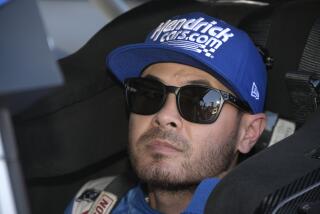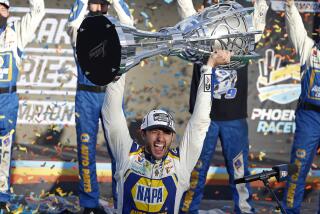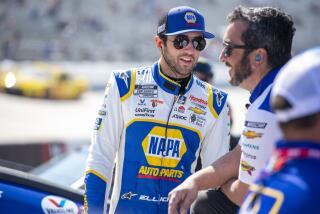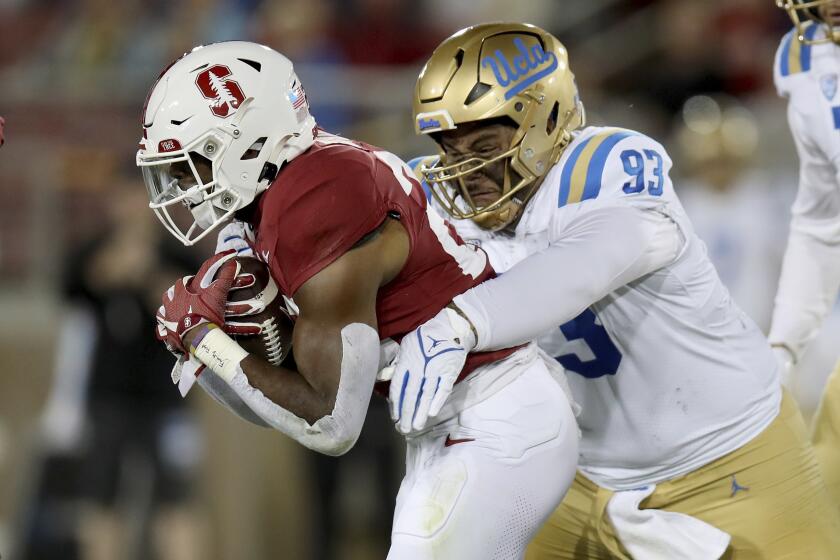Ex-NASCAR champs think today’s stars could have shorter career track
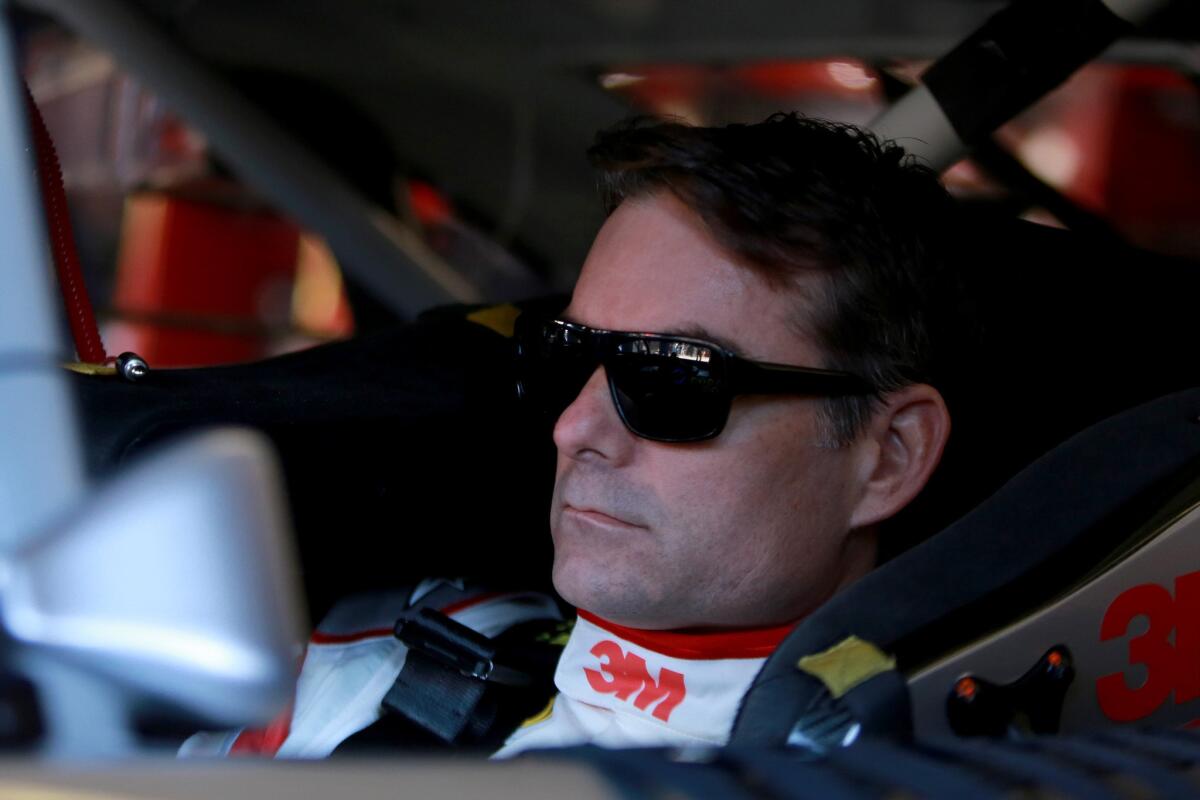
At 3:44 on an August morning in 2007, former NASCAR champion Dale Jarrett suddenly woke from a sound sleep.
“It hit me then,” he recalled. “It’s time to retire.”
Jarrett was 50 at the time. He was struggling to recapture his past glory at the track and had overtures to be a NASCAR television analyst. So thoughts of leaving the race car had been building before he bolted awake.
Every driver has his own reasons for deciding when it’s time to retire, of course. But Jarrett said he does not expect Jimmie Johnson, Dale Earnhardt Jr. and the other top veteran drivers now competing in NASCAR’s Sprint Cup Series to collectively keep racing to age 50 and beyond.
Other past NASCAR champions, including Darrell Waltrip, Rusty Wallace and Bill Elliott, agreed it’s unlikely today’s crop of aging NASCAR stars will remain in the Cup series as long as they did.
“I don’t see them waiting that long” to retire, said Wallace, the 1989 Cup champion who stopped racing at 49.
The recent decision by 43-year-old Jeff Gordon, a four-time champion, to step away from full-time driving after this season only buttressed their belief.
Gordon’s decision also again triggered the when-might-you-retire question for several big-name NASCAR drivers, namely Johnson, 39, a six-time champion; Earnhardt, 40, reigning Cup champion Kevin Harvick, 39; former champion Matt Kenseth, 42; three-time champion Tony Stewart, 43; and Greg Biffle, 45.
All are making the Cup series’ stop this weekend at Las Vegas Motor Speedway, the third race of the season.
“Yeah, I’m getting up there,” Earnhardt told reporters before the Daytona 500 last month. But he added, “Right now I can’t see anything cropping up around me” to lead him to quit, “and hopefully they don’t for a while.”
Jarrett, now with NBC Sports, and the other past NASCAR stars cited several reasons why today’s drivers aren’t likely to race as long as they did: The current drivers’ seven- or eight-figure annual incomes, NASCAR’s grueling 36-race Cup season, the accompanying daily demands of appearances for sponsors, and growing competition from a strong contingent of young Cup drivers such as Joey Logano, 24, who won the Daytona 500 last month.
Earnhardt, for instance, earned $23.8 million last year while Johnson earned $22.5 million, Forbes recently estimated.
If the veteran drivers have young children — as Gordon, Johnson and others do — the desire to spend more time with them, and to step away from the threat of a racing injury, also plays a role in prompting drivers to retire earlier than the last generation did, they said.
Top drivers today are “making more money and there are more races now” with 36 points-paying events plus the All-Star race and Sprint Unlimited preseason exhibition race, Wallace said. “I love the sport to death, but that grind, man.”
Owing to the nature of the sport, race-car drivers can keep competing at NASCAR’s top level at ages higher than, say, those of players in the NFL or NBA, where physical limitations prevent most from playing past 40.
But as with all sports, NASCAR drivers must wrestle with the tough decision of when to walk away from careers that have been the center of their lives and, in some cases, made them household names.
Seven-time champion Richard Petty, for instance, raced until he was 55, eight years after he won his last race. Dale Earnhardt Sr., the only other seven-time champ, was 49 when he was killed in acrash on the last lap of the 2001 Daytona 500.
Elliott, the 1988 Cup champion who this year was inducted into NASCAR’s Hall of Fame, raced until 2012 when he was 56, nine years after winning his last race.
“You love the sport ... you put your whole life into it,” said Elliott, whose son Chase, 19, is one of NASCAR’s rising stars and will replace Gordon next year in the No. 24 Chevrolet. “I just enjoyed racing.”
“It’s in your blood and you just can’t turn it on and off,” said Waltrip, a three-time Cup champion who raced until he was 53. Wallace put it another way: “When I got out of that car ... that was the sickest feeling I’ve ever had.”
Regardless, Kenseth said Gordon “is probably starting” the process of the sport’s celebrated drivers retiring over “the next seven or eight years. It’s just kind of a natural deal in the sport.”
But this round of retirements will be different, the past champions said.
“All the guys that came up when I did, they fought it to the bitter end” to keep racing, said Waltrip, a NASCAR analyst on Fox who, like Jarrett and Wallace, said having a TV job in the wings helped them call it quits.
“A lot of drivers back in my time didn’t have that ... opportunity for a second career,” Waltrip said.
Ultimately, it’s the millions of dollars earned by today’s top drivers that will prompt them to stop racing well before they reach 50, predicted Ray Evernham, who guided Gordon to three of his four Cup titles as his crew chief.
“The amount of money they get paid allows them to retire earlier and earlier,” Evernham said. “There are a lot of guys who ... knew they drove past where they should have because they didn’t have the options. They had to do it because they needed the money.”
Follow Jim Peltz on Twitter @PeltzLATimes
More to Read
Get our high school sports newsletter
Prep Rally is devoted to the SoCal high school sports experience, bringing you scores, stories and a behind-the-scenes look at what makes prep sports so popular.
You may occasionally receive promotional content from the Los Angeles Times.
